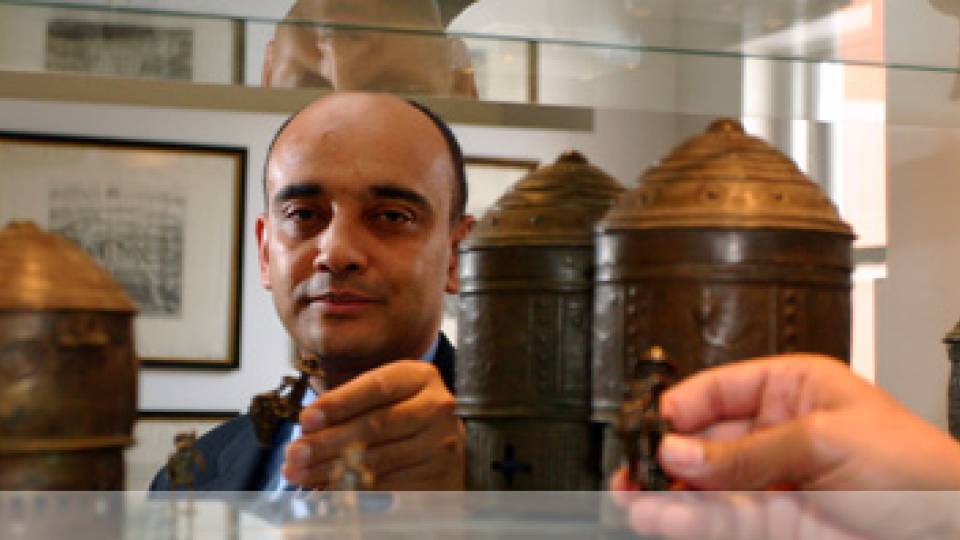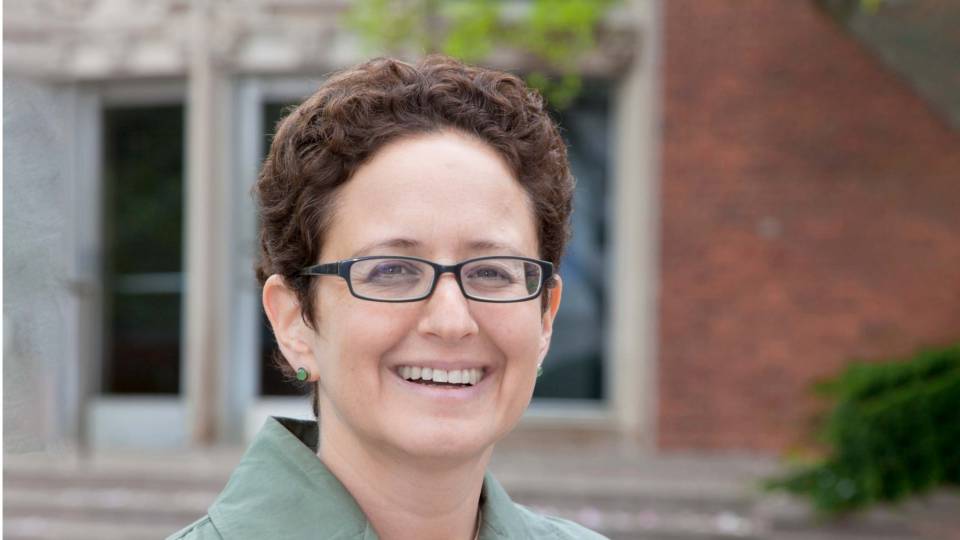At a time when issues of identity and politics are in sharp focus, Amy Gutmann stresses that "there may be no more important goal for the 21st century than that we break down the barriers that lead people to fight one another on the basis of hostile group identities."
Gutmann's latest book, "Identity in Democracy," published this winter by Princeton University Press, examines the role of group identity in democratic justice, addressing what she calls a "surprisingly neglected part of democratic politics with profound implications, both positive and negative."
The provost of Princeton since 2001 and the Laurance S. Rockefeller University Professor of Politics and the University Center for Human Values since 1990, Gutmann joined the faculty in 1976 as a professor of politics. She is the president of the American Society of Political and Legal Philosophy and was founding director of the University Center for Human Values.
Discussing her most recent book with the Princeton Weekly Bulletin, Gutmann described how groups of people work together and work against each other to constantly shape democratic society. An excerpt from the interview follows:
Should people get closer to identifying across and beyond ascriptive groups such as race, and how?
Yes, but we should also recognize the worthy causes that have been served when people joined together on the basis of ascriptive identifications such as race, gender and disability that have been negatively stereotyped by the larger society. Ascriptive associations -- such as the NAACP, National Organization for Women and the National Association for the Deaf -- have helped millions of individuals publicly express a far more positive identity, and achieve far more civic equality as a consequence, than would otherwise have been feasible in the context of historically entrenched negative stereotypes. Ascriptive associations also mobilize people in democratic politics to combat injustices to which members of more advantaged groups turn a blind eye. They also provide mutual support to people who otherwise would be left out in the cold.
This said, democratic justice would be better served were more people to identify across and beyond ascriptive identities. The possibility of cross-ascriptive identities is far from a pipe dream. The civil rights movement in the United States and the truth and reconciliation process in South Africa, for example, both provide existence proofs of this possibility.
Why can't we just identify around universal human rights?
Logically speaking, we can just identify around universal human rights, but logic surely is not sufficient in human affairs. An ideal theory of justice says that when people associate for political purposes they should do so on the basis of a general moral commitment to justice, regardless of their group identity.
But in a society still characterized by injustices that accrue to people because of their race, ethnicity, religion, gender and disability, it is an error of practical judgment to assume that people will associate together simply on the basis of moral commitment, disregarding their group identities. To assume that they will do so is to ignore reality, not to build a better world on the basis of it. An ideal theory is therefore no substitute for a set of moral considerations about how we realistically can move closer to the ideal in the world as we know it, with many historically entrenched injustices that accrue to people because of their ascriptive and other group identities.
Current affairs are intensely charged with issues of identity. What are the dangers of this, and is democratic justice out of reach?
Issues of identity are unavoidable in contemporary politics. We become more aware of these issues, and more fearful of group identities, when the identities are radically different from our own and radically intolerant of others.
Democratic justice is an aspiration that includes the idea that we can improve our understanding and our practice of human rights over time. Democratic justice, therefore, will never be within any individual's or group's grasp, once and for all. What is within human grasp, however, is to combat the most egregious injustices of our time by orienting our hearts and minds toward human rights and responsibilities. We can do justice to identity groups by distinguishing among the good, the bad and the ugly, while recognizing that they cannot be counted upon to do likewise to others.
The full interview is available in the Weekly Bulletin.
Contact: Evelyn Tu (609) 258-3601





